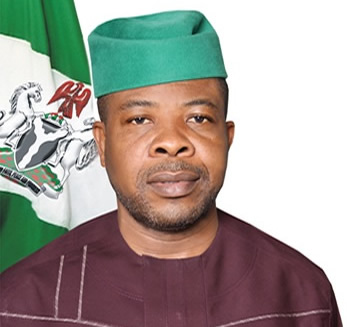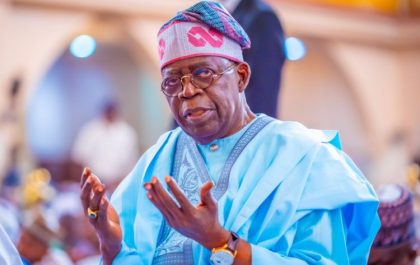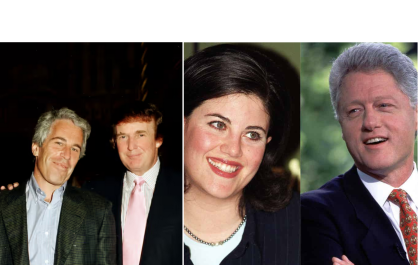By king Eze
As the political terrain in Nigeria realigns after the seismic shifts of the 2023 general elections, few figures straddle the line between the old order and the emerging movement. In this fold are people like Rt. Hon. Emeka Ihedioha.
Once a powerful voice in the People’s Democratic Party (PDP), the former Imo State Governor now finds himself navigating a more complicated landscape, one where the “Obidient” movement, driven by Peter Obi’s momentum, has become the heartbeat of Nigeria’s political consciousness among youths and disenchanted voters.
This writeup explores Ihedioha’s political history, his past and current relationship with the Obidient family and Peter Obi, as well as what he must do to regain credibility, build bridges, and contribute meaningfully to a new national coalition.
Emeka Ihedioha rose through the ranks of Nigerian politics with a career that spans the executive and legislative arms of government. From being a Chief Whip in the House of Representatives to eventually becoming the Deputy Speaker (2011–2015), he solidified his image as a technocratic legislator.
His tenure as Governor of Imo State in 2019, though abruptly cut short by a controversial Supreme Court ruling in January 2020, that declared Senator Hope Uzodinma the rightful winner, still holds symbolic weight for many Imolites who viewed his time in office as a break from the state’s cycle of impunity.
However, Ihedioha’s fortunes took a hit following his 2019 ouster and his perceived aloofness during the 2023 political upheavals that gave rise to the Labour Party’s popularity.
From Allies to Awkward Distance
Peter Obi and Emeka Ihedioha once belonged to the same PDP family. As Anambra and Imo states share borders and cultural proximity, both leaders had the opportunity to align ideologically and strategically,
But things became complicated after Peter Obi’s exit from the PDP in May 2022 and subsequent adoption as the Labour Party Presidential candidate. Like many mainstream PDP figures, Ihedioha remained within the fold of the party even as its internal crisis deepened, especially with the G5 Governors’ rebellion and national discontentment over the Atiku Abubakar’s candidacy.
The Obidient Movement, which coalesced around Peter Obi’s candidacy, saw Ihedioha as part of the old establishment. This perception worsened when he was accused in viral social media clips of allegedly referring to the Obidient movement as “saboteurs.”
Though his uninformed media aides attempted damage control, the wound left an indelible mark, especially among young, politically conscious Nigerians.
The Obidient family is not a formal political structure; it is a movement of politically awake Nigerians, largely under 40, who are disillusioned with both the APC and PDP.
The Labour Party won 12 states in the 2023 presidential election, with massive turnouts in urban areas,such as Lagos, Abuja, and key Southeast states, whose influence cannot be denied.
A movement that once had no office, no traditional political machinery, and no elite funding shook the very foundation of Nigerian politics: winning House of Reps seats, several Senate positions, and governorship (including Abia State under Alex Otti). Their media presence, was organic, decentralized, and fiercely independent.
As the PDP loses steam and the APC struggles with legitimacy issues, a new coalition is emerging that would possibly involve elements of the Labour Party, NNPP, SDP, and even disgruntled former PDP and APC politicians.
If Emeka Ihedioha is to be relevant in this space, he must, among ther things, do the following:
1. Sincerely make Peace With Peter Obi, publicly: Nigerians are watching. A private handshake won’t do. Ihedioha must acknowledge past missteps and offer public solidarity with Peter Obi’s vision. He doesn’t have to defect to Labour Party, which he tried to do and failed, but he must show he respects its leader and its followers.
2. Engage the Obidient family, not manipulate them: Rather than attempt to “capture” the Obidients through token appointments or media gimmicks, Ihedioha must include them in policy formulation, decision-making, and delegate formation structures if he’s building a coalition or party machinery. This means reserving delegate slots for youth leaders from Obidient structures. Others include allowing digital town halls, partnering with civic tech communities, and respecting their independence.
3. Build an Independent, Critical Media Arm: One of PDP’s greatest weaknesses, especially in the Southeast, has been its reliance on praise-singers and sycophants. Ihedioha must cultivate a media structure that invites critique and encourages policy debate. This includes hiring fact-based media strategists, using social listening tools to understand grassroots sentiment, and avoiding the temptation to silence dissenting voices.
4. Offer a Vision Beyond Sentiment: If Ihedioha must distinguish himself, he must go beyond “restoring” his 2019 mandate. Nigerians now demand fiscal transparency, youth-focused governance, clean elections, and digital inclusion in governance.
He should champion electoral reform, digital economy initiatives, public audits, and job creation blueprints. All of these should not just be tied to statecraft, but also national rebirth.
What Ihedioha Can Learn From Labour Party’s Mistakes
Though the Labour Party had a phenomenal rise, internal crises and lack of structured internal democracy are now threats to its future. Ihedioha must, therefore:
– Build a movement, not just a party.
– Establish clear ideological foundations.
– Avoid recycling PDP-era opportunists in new robes.
– Let democracy begin from his own office.
Emeka Ihedioha has the experience, the network, and the track record to be a pivotal figure in Nigeria’s next political chapter. But experience is no longer enough.
In this age of civic consciousness, relevance comes from humility, reinvention, and inclusion. If he must lead again, or even influence who does, he must start by building trust with the people who now carry the moral weight of Nigeria’s democratic hope, the Obidient family.
- History is offering him a second chance. But this time, it won’t come from the courts, it must come from the people.
Related posts
Subscribe for newsletter
* You go receive the latest tori wen you put your email



